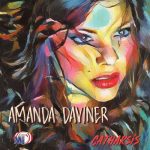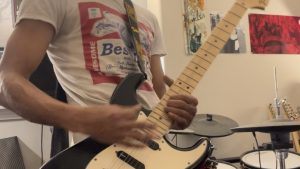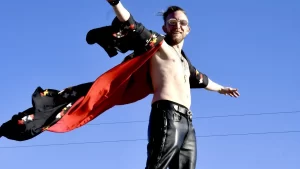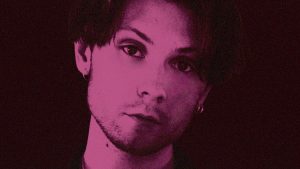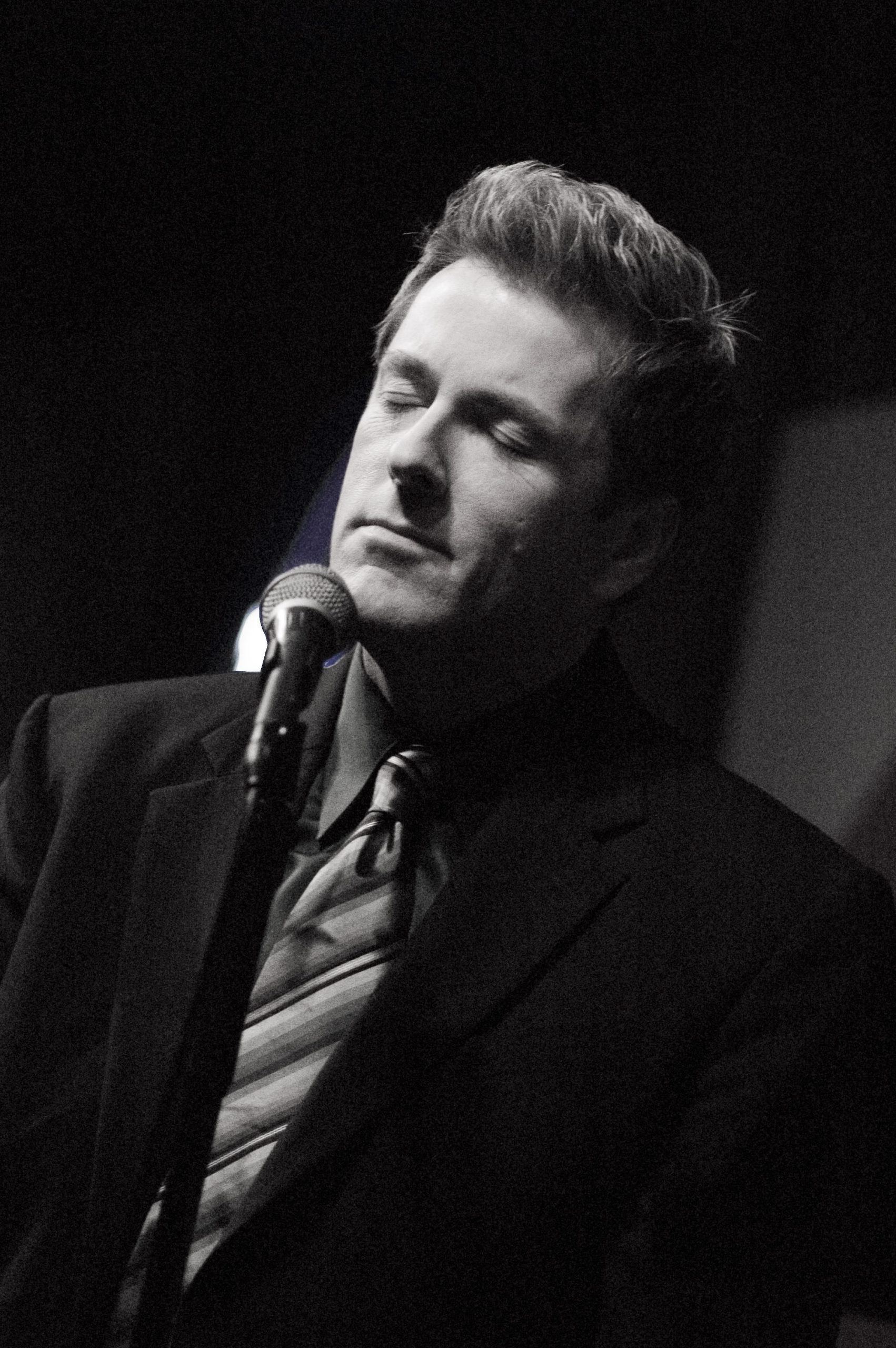
INTERVIEW: Russ Lorenson, San Francisco’s Favorite Crooner
We had the opportunity to interview San Francisco’s cherished crooner, Russ Lorenson, who unveils his long-awaited album, “Standard Time: Live in New York.” Known as “San Francisco’s Favorite Crooner,” Lorenson’s captivating tenor and love for The Great American Songbook have earned him acclaim in the United States and Europe.
Despite overcoming HPV-positive tonsil cancer in 2021, which silenced his singing voice, Lorenson is back with a bang. Alongside a series of creative projects, he’s dropping his first album in 8 years, featuring enchanting live performances from the iconic Metropolitan Room in New York, recorded in 2008.
“Standard Time: Live in New York” bridges the gap between classic and modern, with timeless renditions of songs like Lionel Richie’s “Hello” and heartfelt tracks like “How I Will Say I Love You.” Lorenson’s dedication to preserving musical magic shines through as he invites you to rediscover the enduring charm of The Great American Songbook.
Check out our interview below.
Congratulations on the upcoming release of “Standard Time: Live in New York”! How are you feeling with the release so close (it has been a while since you last put music in the world!)
To be honest, it’s a bit surreal! With the residual damage from my tonsil cancer, I had pretty much concluded that the music part of my life was over. When I dug the original master recordings out of storage, I had no idea whether they would be worth anything or not – I’d never listened to them. So I was thrilled when I heard them – I’d even forgotten that I had performed a few of the songs. But the process of being back in the studio, making creative choices and preparing for an album release has been so rewarding.
Could you share a bit about your creative process in selecting the songs for this live album?
Back in 2007 when I was creating the show that the album is based on, I kept hearing that “The Great American Songbook is dead, no one writes music like that anymore,” and I just didn’t believe it. My contention was that great songs were still being written, just waiting for exposure by thoughtful artists and musicians. So the challenge I set for myself in selecting the songs was to limit the timeframe to the previous 20 years or so. I looked for songs with strong, meaningful lyrics and beautiful melodies – I really wanted to celebrate the songwriters who are keeping the Songbook alive. And a lot of the songs on the album were (not coincidentally) written by great singers of the classic Songbook – people like Harry Connick, Jr., John Pizzarelli, Peter Cincotti and of course our spiritual leader, Michael Feinstein. And you know what? It wasn’t hard to find songs – the challenge was limiting the set list so that the show wasn’t 4 hours long!
The Great American Songbook has a rich history. What aspects of this musical era resonate the most with you, and how have they influenced your own style and performances?
Well that’s the thing, isn’t it? The Great American Songbook isn’t an “era” – it’s a genre of music that celebrates the three-way marriage of great lyric writing, melodic composition and the individual artistry of singers who breathe new life into a song when they sing it. So that’s what I’m drawn to – beautiful melodies, lyrics that you can not only understand but cherish, and superb singers who each put their take on a song. The way Tony Bennett interprets a song is very different than the way Bing Crosby, Ella Fitzgerald – or even Lady Gaga – interprets that same song. That alone shows the strength of the song, that it can be molded by very different performers and still be meaningful each time.
Your career has spanned multiple albums and live performances. What growth or changes do you see in yourself as an artist between your earlier recordings and this forthcoming release?
It’s funny you ask that, because I recorded this album fairly early in my career – back in 2008. My most recent album prior to this one was recorded in 2015. In the 7 years between those recordings, I hear my style becoming much more refined, much more jazz oriented. My first album from 2006 was very “cabaret,” bordering on theatre, because that’s the world I was coming from. With this new album, I can definitely hear that I had made a marked and deliberate shift toward jazz sensibilities by 2008. And of course by 2015, I was performing and recording with a big band, so the transition was fully made.
In what ways do you think “Standard Time: Live in New York” captures the essence of your live performances and connection with your audience?
I always tried to be as genuine and authentic as I could be on stage. Many people can tell you that I am no different in private than I am on stage. I enjoy having a good time, and I always enjoyed making music with my dear friends in the band. I think that joy and fun comes through in the album – it’s a real “you are there” kind of experience. I tell people to sit down and listen to it from start to finish, to get the essence of having been in that club in October 2008. To be honest, I probably talk a little too much in between songs, but it’s that kind of experience that I was trying to give, rather than create singles that would “pop” on Spotify.
Can you share a memorable moment from the recording of “Standard Time: Live in New York” that holds a special memory for you?
For me, listening back reminds me of all the special people who were there when we recorded it. Many of the composers whose work I was performing came to the show and gave their support. Singing “How I Will Say I Love You” to the singer and composer Tony DeSare who was sitting directly in front of me was a terror and a thrill. The fact that we turned it into a moment – I comment in the song intro that we had never met, and then I reached down and shook his hand and introduced myself – is a great fun memory for me, and something that I am so happy we caught on tape. The late Ray Jessel, another performer and composer, and a beloved member of the cabaret community, came to both performances to hear me do his songs. His generosity and love have stuck with me all these years, and the album is dedicated to him.
Your commitment to leaving a lasting, positive legacy is really admirable. What legacy do you hope to leave through your music and other creative endeavors?
I don’t have children, and at 60, I don’t plan to have any now! But these albums, and the books I’m working on, are my children, my legacy. I’m thrilled to know that nearly 20 years after our first album came out, the songs are still being listened to thousands of times a year, and still being played on major radio stations. I’m happy to know that I will leave this planet with a little joy, a little beauty, that will go on long after I am gone.
What do you hope most of all that people take away from this?
That The Great American Songbook is alive and well and thriving! It’s not an artifact of the olden days, it is in fact one of the greatest art forms that America has given to the world. No matter where you go in the world, people are listening to Gershwin, Porter & Mercer, and also to Connick, Pizzarelli and Lionel Richie! It has substance and meaning and life and it will go on for ages to come.
Tell us about your upcoming Release Show in New York City.
Well, as I mentioned earlier, the residual effects of my treatment for tonsil cancer have left me unable to sing any longer. So doing an album release show presented a bit of a challenge – it wasn’t like I was just going to sell tickets for people to come to a theatre and listen to the album, LOL. So I enlisted the help of some great musical pals – Jennifer Roberts, Lennie Watts, Mary Foster Conklin, Spencer Day and Billy Stritch – to come do the heavy lifting for me and sing the songs from the album. Not unintentionally, it proves the idea behind the album that great songs can be interpreted by many different artists! We’ll also be doing a remembrance of our good friend Ray Jessel. And to put a nice bow on it (and back to the legacy question) we are doing it as a fundraiser and all proceeds will go to the American Songbook Association, a nonprofit whose mission is to preserve, promote, and advance the legacy of American popular music, the Great American Songbook (classic and new), and the unique art form of cabaret. The ASA publishes the long-established “Cabaret Scenes” magazine, conducts educational programs in New York City public schools, and creates performances serving its audience of seniors, students, and others.
Follow Russ Lorenson
https://www.russlorenson.com/

